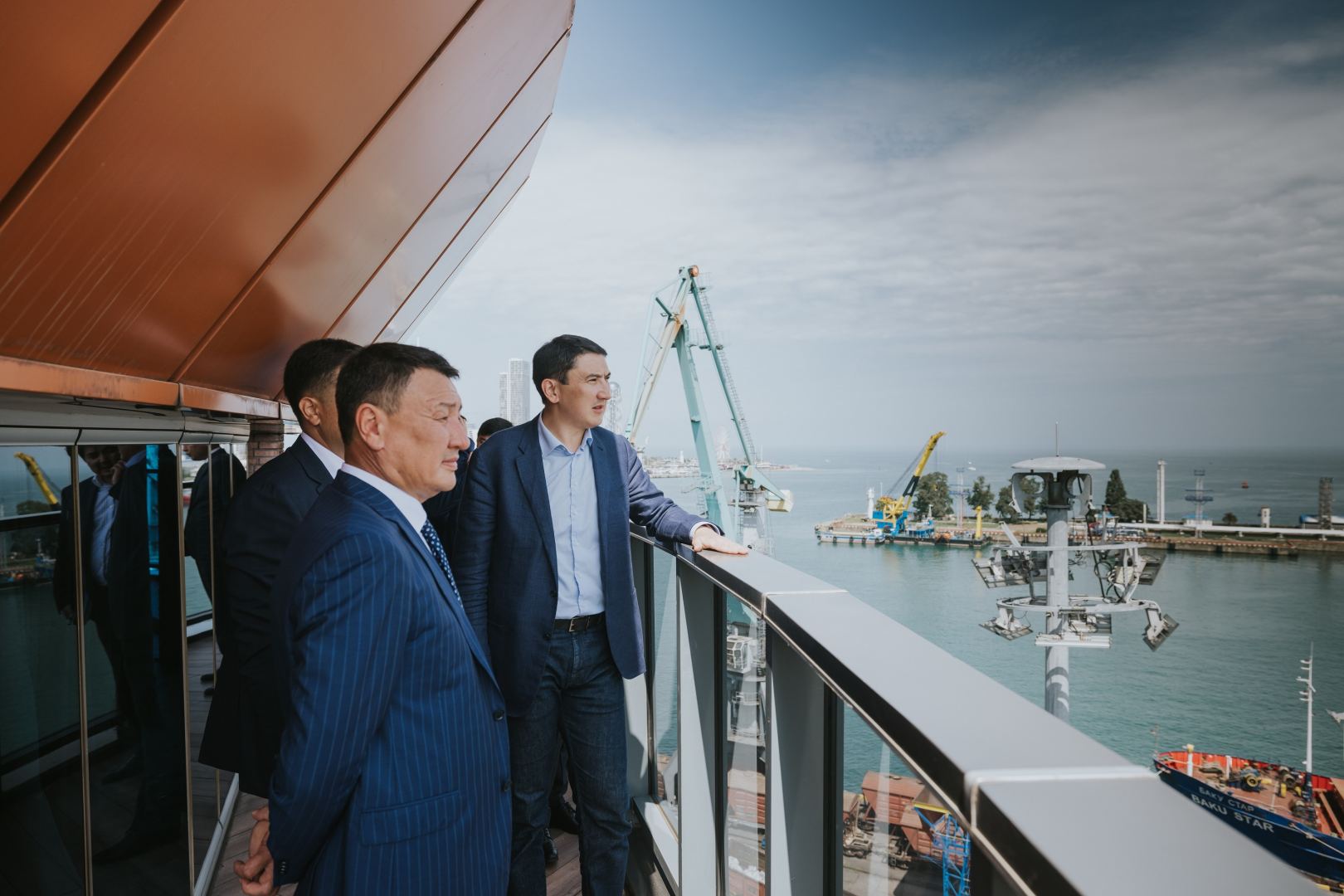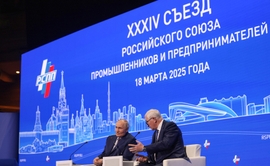The chairman of the board of Kazakhstan's state oil company KazMunayGaz, Magzum Mirzagaliyev, and the president of Azerbaijan's energy giant SOCAR, Rovshan Najaf, recently met to discuss bilateral cooperation.
During a meeting on August 15 in Baku, they discussed collaboration between companies on both sides with regards to the development of the Trans-Caspian infrastructure, according to Azerbaijan’s Trend news agency.
Earlier on August 12, Reuters revealed that Kazakhstan is expected to sell some of its crude oil through Azerbaijan's biggest oil pipeline, Baku-Tbilisi-Ceyhan (BTC), from September, as the nation seeks alternatives to a route that Russia has threatened to shut down.
“Kazmunaigaz (KMG) is in advanced discussions with the trading arm of Azerbaijan's state firm SOCAR to allow 1.5 million tons per year of Kazakh crude to be sold through the Azeri pipeline that delivers oil to Turkey's Mediterranean port of Ceyhan. The final contract is due to be signed at the end of August”, the report said.
Another 3.5 million tons per year of Kazakh crude could start flowing in 2023 through another Azeri pipeline to Georgia's Black Sea port of Supsa. Combined with BTC flows, the volume would equate to just over 100,000 barrels per day (bpd). Relying on Azerbaijan would allow Kazakhstan to sidestep Russian territory. Last month, BP Azerbaijan said it would redirect flows away from the Baku-Supsa pipeline to the larger BTC pipe.
The new BTC route means Kazakhstan will have to rely on a fleet of small tankers to take its oil across the Caspian Sea to Baku from its port at Aktau which has limited spare capacity.
Meanwhile, Kazakh Energy Minister Bolat Akchulakov has denied that his country is planning to use an Azerbaijani oil pipeline bypassing Russia in order to sell its oil to EU countries
"In fact, I do not think that we will sign any agreement on the transport of oil (via the BTC) today. Such issues are technically discussed, probably, at the level of national companies because there is such a task. However, it is not about the signing of an agreement on shipping oil starting from September... At least I did not conduct such negotiations," Tengrinews.kz quoted Akchulakov as saying on August 13.
Ensuring the uninterrupted operation of the Caspian Pipeline Consortium (CPC) was "the most important task" at the moment, according to the minister, who described the CPC as the main route and the most profitable one in terms of economy.
Kazakh oil exports account for more than 1% of world supplies or roughly 1.4 million bpd. For 20 years, the Kazakh oil has been shipped through the CPC pipeline to Russia's Black Sea port of Novorossiysk, which provides access to the global market. Kazakhstan exports more than two-thirds of its oil via the CPC pipeline.
On July 5, a Russian court banned Kazakh oil exports via the Russian Black Sea port of Novorossiysk for 30 days, marking the third time that Russia restricted or threatened to restrict the operations of the CPC since March. However, an appeals court overturned the ban on July 11. Around 80% of Kazakh oil exports are transported to Europe through the CPC.
Kazakh President Kassym-Jomart Tokayev is set to pay an official visit to Baku before the end of August, where he will discuss energy and transport cooperation issues.







 Azerbaijan has been recognized as one of the safest countries in the world, ranking 90th among 163 countries on the Global Terrorism Index 2025 (GTI).
Azerbaijan has been recognized as one of the safest countries in the world, ranking 90th among 163 countries on the Global Terrorism Index 2025 (GTI).
 The Azerbaijani Defense Ministry has reported ongoing shelling of its army positions by Armenian forces since last week.
The Azerbaijani Defense Ministry has reported ongoing shelling of its army positions by Armenian forces since last week.
 Iranian Foreign Minister Abbas Araghchi has urged the International Atomic Energy Agency (IAEA) to take a "transparent position" regarding potentia...
Iranian Foreign Minister Abbas Araghchi has urged the International Atomic Energy Agency (IAEA) to take a "transparent position" regarding potentia...



